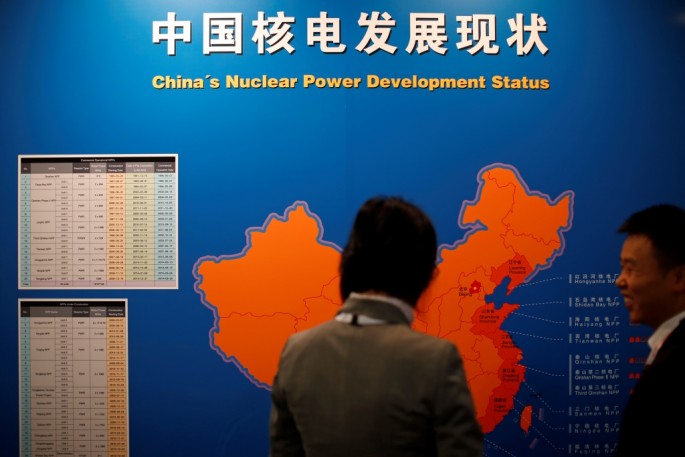China’s State Nuclear Power Technology (SNPT) is set to merge with China Power Investment Corp. (CPI), one of the country’s top five state-owned power generation groups, as Beijing moves to consolidate its rapidly expanding nuclear power sector and export reactors overseas.
CPI currently holds about a 10th of China's nuclear power market, while the SNPT was formed in 2007 to absorb advanced third-generation nuclear power technology from U.S.-based Westinghouse Electric Co.
In separate filings sent to the Hong Kong Stock Exchange, both companies said that the process for consolidation and reorganization is already under way with CPI as the ultimate parent. A detailed proposal on the merger has yet to be issued as of writing.
All of China Power's five mainland-listed units, including Shanghai Electric, Jilin Power, and Dongfang Energy, have also announced on Wednesday that they have received notice from China's Assets Supervision and Administration Commission regarding the merger.
If successful, the deal would result in CPI having 600 billion yuan ($96 billion) in total assets, according to a report from Reuters quoting industry insiders.
"The merger will help them expand in China, and the overseas market in the long run," said Francois Morin, China director of World Nuclear Association.
The move would also boost CPI's status as country's third-largest nuclear reactor operator and close the gap between its more established state-owned competitors China National Nuclear Corp. (CNNC) and China General Nuclear Power Group (CGN).
News of SNPTC and CPI's merger follows that of the previous month's merger of China CNR and CSR Corporation Ltd., the country's two rolling stock markets, which is seen as Beijing's ongoing campaign to cut down the number of state firms and to improve their competitiveness via consolidation.
China, which owns the world's largest fleet of nuclear reactors, seeks to become a major player in overseas nuclear plants construction industry where it has cost advantages. Industry experts also expect the country to begin exporting reactors by 2020 and become a major exporter in 2030.
The market is currently led by firms such as France's Areva, Russia's Rosatom State Nuclear Energy Corp. and Japan's Toshiba Corp., which controls Westinghouse.



























